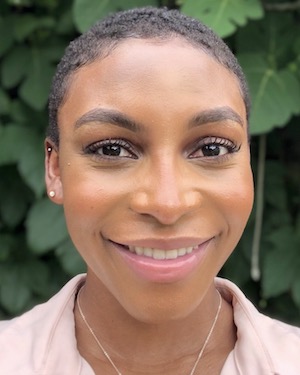Being Black in OT: The Impact On My Future Black Clients

April 7, 2021
by Lamoni
Two weeks ago, I attended a livestream event by the Summit Performance Indianapolis called “Black Voices in OT.” It consisted of a play that highlighted common experiences of Black occupational therapy students and practitioners. Many of these experiences were negative. It was filled with micro-aggressions, insensitive statements, and harmful actions by peers, professors, and bosses. The structure of the play was interesting because it took place over a zoom call; It was two OT practitioners and one OT student having a casual check-in to release all of their frustrations regarding the racism that they experienced during work and at school. The purpose of the play was to bring attention to the fact that Black OTs have to navigate racism all while trying to balance the demands of being a graduate student, care for clients to their full capacity, maintain relationships with peers and coworkers, and remain in a positive attitude. It requires a lot of energy and it can feel even more depleting when there is not a shoulder to lean on or an ear to listen.
As I watched the play and heard the compilation of several upsetting stories which were extracted from actual surveys taken by Black OTs and OT students, I did find relief in the fact that they had each other. Between their sighs and head shakes were also moments of laughter. It reminded me of my own conversations with my family and Black friends. To be amongst people with a shared identity and shared experiences can be very therapeutic. It can be a source of reassurance and confidence. It can be the difference between getting knocked down and staying down or choosing to stand up again.
USC Chan’s incoming class of 2023 is the most racially diverse class yet. I can only hope that an increase in diversity is true for several other occupational therapy programs across the nation because we need it. I believe more representation in the field would decrease the number of negative experiences highlighted in the play. Besides that, I think being Black in OT comes with many positives for Black clients. Currently, and rightfully, the Black community has a lot of mistrust towards the healthcare system. This is due to a long history of medical abuse, neglect, and exploitation. As more Black people enter healthcare professions, trust can be restored. With trust comes more buy in; clients may be more likely to fully participate during sessions and to listen to the OT’s recommendations. This can translate to greater improvements in their condition, fewer hospital re-admissions, etc.
As a Black OT, you will be a practitioner that your Black clients can relate to. Being of the same culture typically means that there will be several shared experiences, maybe similar upbringings, or interests. This is another way to build rapport and establish a strong, trusting relationship. Additionally, you can be a source of emotional healing. We typically think of healing in terms of health conditions, but we have to remember that occupational therapy is holistic and takes into account emotional health. Racial injustices are constantly taking place around us and this undoubtedly takes a toll on Black clients’ wellbeing. If you are working in an inpatient rehab facility and your Black client does not have friends or family around to talk about what they may have recently watched on the news (for example, Black Lives Matter marches), your presence and the assumption that you understand racial trauma can promote healing. Even without speaking, you may be a source of comfort.
I will be graduating next month and while I am simply excited to soon enter the workforce in this amazing profession, I am equally excited to serve my community. I think about the general mistrust towards the healthcare system and how extra doubt may be present towards a field like OT. Many people do not know what occupational therapy is and what occupational therapists do, thus, mistrust may be amplified. Having someone from your background explain the profession, become your practitioner, and lead your interventions is not only beneficial for Black clients but for the occupational therapy profession overall. Yes, we may experience some negative moments, but I am hopeful that the good will outweigh the bad. I am also hopeful that the number of Black OT students and practitioners will rise and, in return, cause the number of unpleasant moments to fall. Continue to push towards diversOT, it benefits us all and can only make our profession better.
⋯
Next by tag Diversity ⟩
⋯
1. .(JavaScript must be enabled to view this email address) | April 20, 2021
You are amazing Lamoni! Thank you for sharing your perspective and I can’t wait to see the great things you will do in the healthcare field by continuing to advocate for underrepresented communities.





